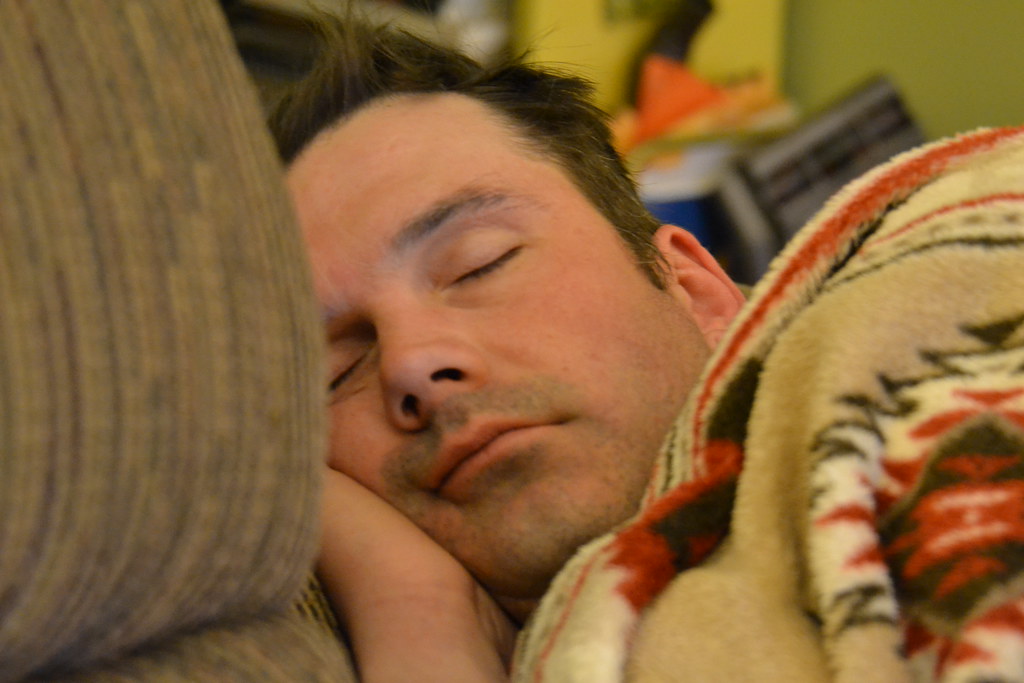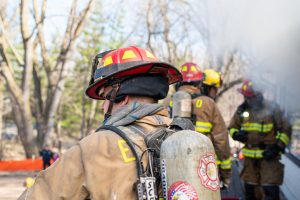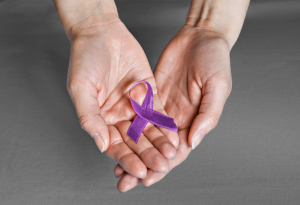MnFIRE thanks Sarah Moe from Sleep Health Specialists for guest authoring this blog and sharing her expertise around this critical component of wellness.
It’s National Sleep Awareness Week – a whole week dedicated to bringing awareness to the importance of sleep! Does this sound excessive to you? If you’re thinking “we all sleep every single night. What other awareness needs to be brought to it?”, you’re not alone. Yet given the fact that human beings (are SUPPOSED to) sleep eight hours each night, we collectively know very little about it. Truthfully, this is because we do not learn about our sleep from a young age the way we learn about the other aspects of health. With focus placed on gym class and the food pyramid, we are raised to believe that being healthy means eating right and working out. We’ve missed so much over the years.
Luckily, we seem to be catching up. This pandemic has placed the spotlight on health and well-being in a new way, and hopefully we won’t be going back. So, this is the perfect time to learn how our sleep co-exists with the mission of MnFIRE – providing Minnesota’s firefighters the tools they need to prioritize and protect their health – specifically related to cardiac, emotional trauma and cancer.
Sleep and cardiac
With all of the recent studies done around sleep and heart health, it is becoming increasingly clearer how important those nighttime zzz’s are. The average person is getting 1.2 hours of sleep less than we did 50 years ago, and it is causing significant cardiac issues. When we are sleeping, our heart rate and blood pressure are drastically reduced, giving our systems a much-needed break and chance to reset for the work of the following day. In fact, short sleepers, those who get less than six hours each night, are 48% more likely to die from coronary artery disease.
On top of that, Obstructive Sleep Apnea (OSA), a sleep disorder that causes you to stop breathing at night, has been shown to have a direct correlation with cardiac stress. OSA is an extremely prevalent sleep disorder, and it is estimated that over 80 million Americans are suffering undiagnosed. Demographically, many first responders fall in this category so diagnosis and treatment are crucial to maintaining optimal heart health.
Sleep and emotional trauma
Trauma and mental well-being have a frustrating relationship with sleep. When we experience trauma, our minds do not have an easy time processing and moving on. The work of understanding its impact is grueling and not at all within our control. While some individuals can put things in a little brain box and never look back, most will find themselves immersed in reliving traumatic situations over and over in their mind – wondering why these things happened, if there was anything we could have done to change the outcome or how long until it doesn’t hurt as much? These thoughts are all-consuming and tend to prevent us from falling asleep. Unfortunately, getting a bad night of sleep leads to a hormonal imbalance the following day. The hormones that regulate mood, motivation and resilience are thrown out of balance and may lead to an anxiety-filled day. When we have those days, it makes it even harder to fall asleep that night. We’ve now entered the vicious cycle of poor sleep and mental well-being. We cannot have one without the other, and they are so impactful to each other.
The easiest way to break this chain is to focus on sleep. Doing what it takes to get the proper quantity and quality sleep will set you up with the neurological tools needed to tackle all that may come.
Sleep and cancer
In 2018, the World Health Organization (WHO) classified night shift work as a “probable carcinogen,” which is something likely to cause cancer. That is because people who work the night shift then have to attempt to sleep during the day. Unfortunately, that goes against most of our circadian rhythms, and we find that it is quite difficult to get restful consolidated sleep in the daytime hours. With reduced sleep time, our natural killer cells, or cancer fighting cells, reduce as well. On top of that, hormones like cortisol and melatonin that are shown to influence the rate of cancer growth are deregulated too. That means not getting sufficient sleep leaves us more vulnerable to many types of cancer.
While this information may seem frightening, it’s actually good news. The research and development of sleep medicine is giving us more information than we’ve ever had, and this information allows us to use all tools in order to stay as healthy, happy and productive as possible. If that sounds like the type of life you would like to live, taking your sleep seriously is a great way to ensure you will achieve that goal. The old airplane cliche is true: We have to put on our own oxygen masks before we can help others. And a great way to ensure we can be at our best to continue serving our community is by getting those zzz’s.










